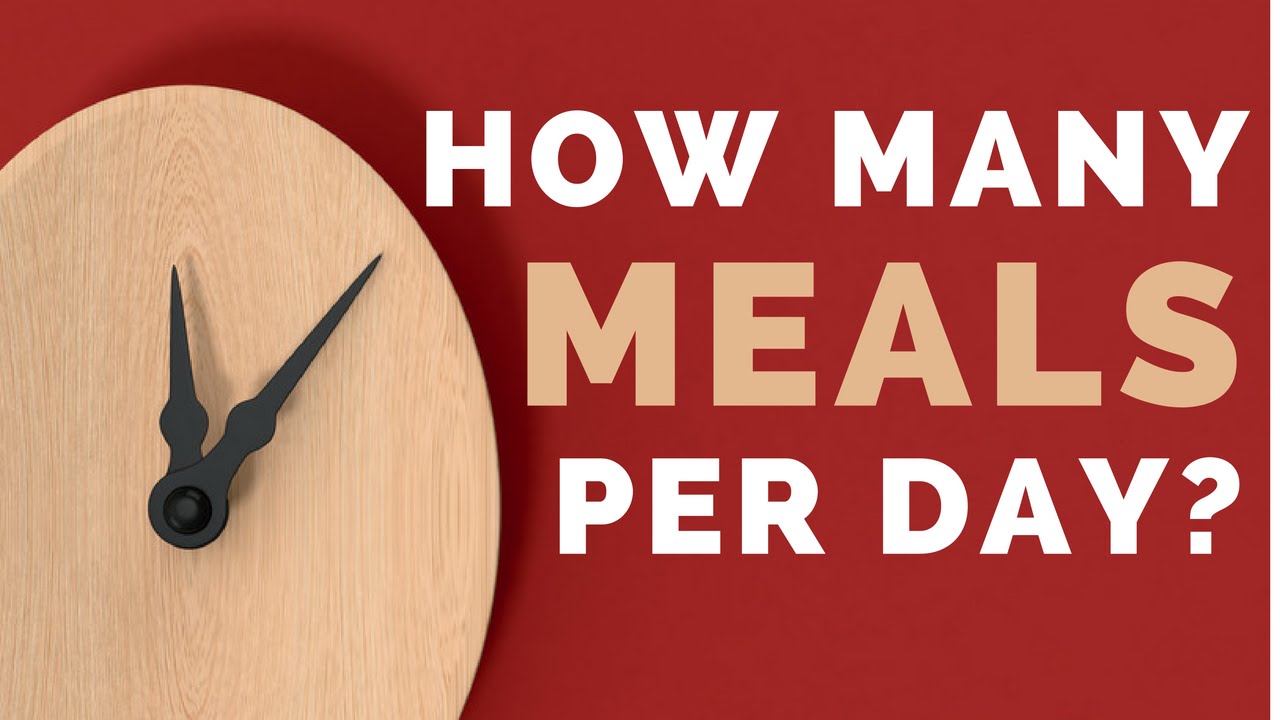How Many Meals Should You Eat Per Day?

How Many Meals Should You Eat Per Day?
“Breakfast is the most important meal of the day” – sound familiar?
Conventional wisdom dictates that breakfast is a necessity, because if you don’t eat it you’ll end up eating more calories later in the day.
But this is simply not true as shown by a 4-month long randomized controlled trial that compared recommendations to eat or skip breakfast in 309 overweight/obese men and women.
After the 4 months, there was no difference in weight between groups. It simply didn’t matter whether people ate or skipped breakfast, and the results have since been supported by additional studies.
The fact is that for adults, there is NO physiological need for breakfast. It does not “jump start” metabolism and there is nothing special about breakfast compared to other meals.
This one’s not rocket science, if you’re hungry in the morning, eat breakfast (a healthy one). If not, don’t.
Okay so what about eating frequent small meals, like 5 or 6 per day. Is that better for metabolism and curbing appetite?
It’s true that digesting a meal raises metabolism slightly, and this phenomenon is known as the thermic effect of food. However, it’s the total amount of food eaten that determines the amount of energy used during digestion. So eating 3 meals of 800 calories will cause the same thermic effect as eating 6 meals of 400 calories. There is literally no difference.
Multiple studies have compared eating many smaller vs fewer larger meals and concluded that there is no significant effect on either metabolic rate or total amount of fat lost.
There’s also the argument that eating often helps balance blood sugar levels. But this is not supported by science.
Research shows that in obese subjects, having 6 meals per day vs 3 meals makes no overall difference to glucose or insulin levels.
Fewer meals may lead to bigger insulin “spikes” immediately after meals, but if it is important, it would only be so for those with diabetes.
I also want to mention that some observational studies show more frequent meals is associated with an elevated risk of colon cancer. Numbers are as high as a 90% increased risk for 4 meals per day, compared to 2 meals. Of course, correlation does not equal causation, so these studies do not prove that frequent eating raises the risk of colon cancer. But it’s a pattern you should be aware of.
Additionally, studies show that skipping meals every now and then appears to be beneficial for our health. This is known as intermittent fasting ans is growing in popularity.
It seems quite clear that for the average person there are no health benefits to eating more frequently. If anything, fewer meals is healthier.
So to answer the question how many meals should you eat per day, I’m going to propose a radical new idea so that you can work it out for your personal situation…
When you’re hungry, eat.
When you’re full, stop.
Repeat.
Studies mentioned in video:
Study 1: http://www.ncbi.nlm.nih.gov/pubmed/24898236
Study 2: http://www.ncbi.nlm.nih.gov/pubmed/25231499



![[ID: Hx_A0iLhdr8] Youtube Automatic](https://bizimtube.com/wp-content/uploads/2021/03/id-hxa0ilhdr8-youtube-automatic-236x133.jpg)
![[ID: lp7w0UmpuIs] Youtube Automatic](https://bizimtube.com/wp-content/uploads/2021/03/id-lp7w0umpuis-youtube-automatic-236x133.jpg)
![[ID: s2-7T1TH-lY] Youtube Automatic](https://bizimtube.com/wp-content/uploads/2021/03/id-s2-7t1th-ly-youtube-automatic-236x133.jpg)
![[ID: b_lakC9M4UQ] Youtube Automatic](https://bizimtube.com/wp-content/uploads/2021/03/id-blakc9m4uq-youtube-automatic-236x133.jpg)
![[ID: r44yl6nPONs] Youtube Automatic](https://bizimtube.com/wp-content/uploads/2021/03/id-r44yl6npons-youtube-automatic-236x133.jpg)
![[ID: pAwto1YQjA8] Youtube Automatic](https://bizimtube.com/wp-content/uploads/2021/03/id-pawto1yqja8-youtube-automatic-236x133.jpg)
![[ID: XETG8azHiv4] Youtube Automatic](https://bizimtube.com/wp-content/uploads/2021/03/id-xetg8azhiv4-youtube-automatic-236x133.jpg)
![[ID: f3G_-S_2HUk] Youtube Automatic](https://bizimtube.com/wp-content/uploads/2021/03/id-f3g-s2huk-youtube-automatic-236x133.jpg)
![[ID: G8oWns54snA] Youtube Automatic](https://bizimtube.com/wp-content/uploads/2021/03/id-g8owns54sna-youtube-automatic-236x133.jpg)
![[ID: s0lIFXhu6aw] Youtube Automatic](https://bizimtube.com/wp-content/uploads/2021/03/id-s0lifxhu6aw-youtube-automatic-236x133.jpg)
![[ID: 4UTd2Ev8eYg] Youtube Automatic](https://bizimtube.com/wp-content/uploads/2021/03/id-4utd2ev8eyg-youtube-automatic-236x133.jpg)
![[ID: RKBGBjVJBxQ] Youtube Automatic](https://bizimtube.com/wp-content/uploads/2021/03/id-rkbgbjvjbxq-youtube-automatic-236x133.jpg)